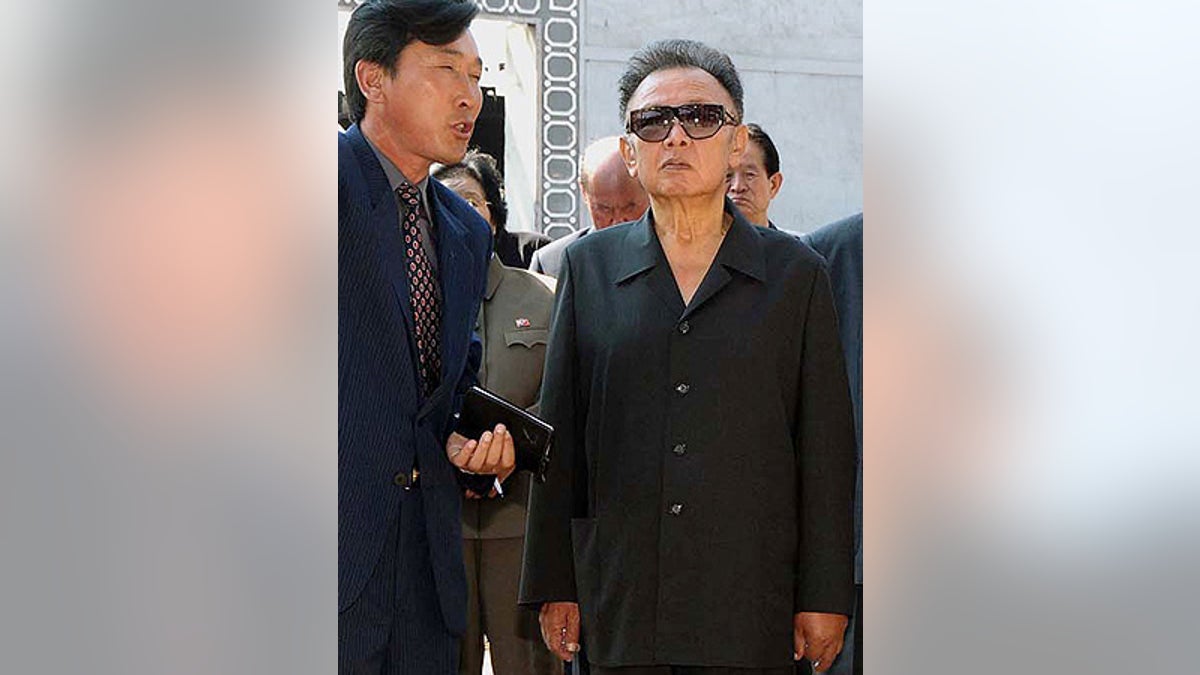
Mar. 31: South Korean soldiers take part in joint military exercises with the U.S. in preparation for a North Korean rocket launch. (AP/KCNA via KNS)
SEOUL, South Korea – North Korea said Friday it is on the threshold of mastering a new way of building atomic bombs, pressuring the United States to agree to direct negotiations or see the communist regime become a greater nuclear risk.
Pyongyang's claim to have succeeded in experimental uranium enrichment — an easier way to make nuclear weapons — raises concerns that North Korea may add uranium-based weapons to enlarge its stockpile of atomic bombs made from plutonium.
North Korea also said it is continuing to weaponize plutonium.
The tough talk came as Washington showed no signs of easing pressure on North Korea despite its recent series of conciliatory gestures, including releasing two detained American journalists and reportedly inviting top U.S. envoys to Pyongyang.
"We are prepared for both dialogue and sanctions," the North said in a letter to the U.N. Security Council carried Friday by its official Korean Central News Agency. If the Council puts "sanctions first before dialogue, we would respond with bolstering our nuclear deterrence first before we meet them in a dialogue," it said.
The Security Council slapped tough sanctions on North Korea for conducting an underground nuclear test in May.
The North said it does not oppose the denuclearization of the Korean peninsula, but warned it would be left with no choice but to take "yet stronger self-defensive countermeasures" if the standoff continues. It did not elaborate on possible countermeasures.
Analysts said the North appears to be trying to add urgency to the standoff to get Washington into one-on-one talks.
"I think this is a 'let's-have-direct talks' message," said Yang Moo-jin, a professor at Seoul's University of North Korean Studies. "The North is saying that the more delayed U.S.-North Korea talks are, the greater its nuclear capabilities will become."
Washington's special envoy on North Korea, Stephen Bosworth, is in the region for discussions with China, South Korea and Japan over how to bring Pyongyang back to six-nation talks that the North has boycotted since earlier this year.
South Korean media reported last week the North invited Bosworth and chief U.S. nuclear negotiator Sung Kim to visit Pyongyang for their first nuclear talks since President Barack Obama took office. Washington has said it has no plan to send them.
Bosworth said Friday any nuclear development in North Korea was a matter of concern.
"We confirm the necessity to maintain a coordinated position and the need for a complete denuclearization of the Korean peninsula," he said in Beijing. He also said the U.S. is willing to have direct talks with Pyongyang, but only within the framework of the six-nation disarmament talks.
North Korea has long sought direct negotiations with Washington. It says it needs nuclear weapons to protect itself against a threat from the U.S., which has 28,500 troops based in South Korea. North and South Korea technically remain at war because their three-year Korean War ended in 1953 with a truce, not a peace treaty.
The U.S. had long suspected the North also had a covert uranium enrichment program, which would give it a second source of nuclear material. North Korea for years denied the claim but revealed in June it was prepared to start enriching uranium.
Verifying the North's claim on uranium enrichment won't be easy, South Korean Defense Ministry spokesman Won Tae-jae said, adding it could be a negotiating tactic.
Uranium can be enriched in relatively inconspicuous, underground factories, and could provide North Korea with an easier way to build nuclear bombs, experts say. Uranium-based bombs may also work without requiring test explosions like the two carried out by North Korea this May and in 2006 for plutonium-based weapons.
The North's announcement suggests the regime has made progress in research and development in its uranium program in a small pilot factory, said Lee Choon-geun of South Korea's state-funded Science and Technology Policy Institute. Still, he said it could take at least five years to build a uranium-based bomb.
The U.S., China, Japan, Russia and South Korea have tried for years to persuade North Korea to dismantle its plutonium-based nuclear program — which experts say has yielded enough weaponized plutonium for at least half a dozen bombs — in exchange for much-needed aid.
After hashing out a 2007 disarmament-for-aid deal, North Korea walked away from those talks earlier this year in anger over the rising international outcry over a rocket launch widely condemned as a disguised test of its long-range missile technology.
